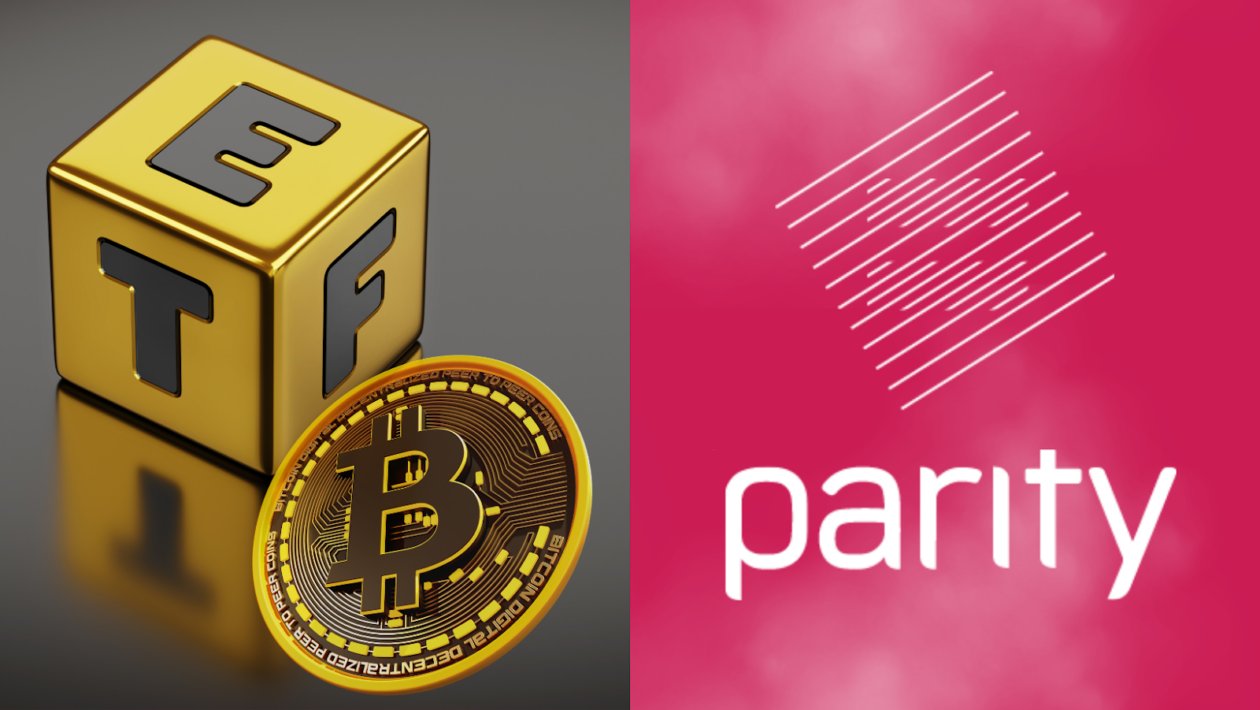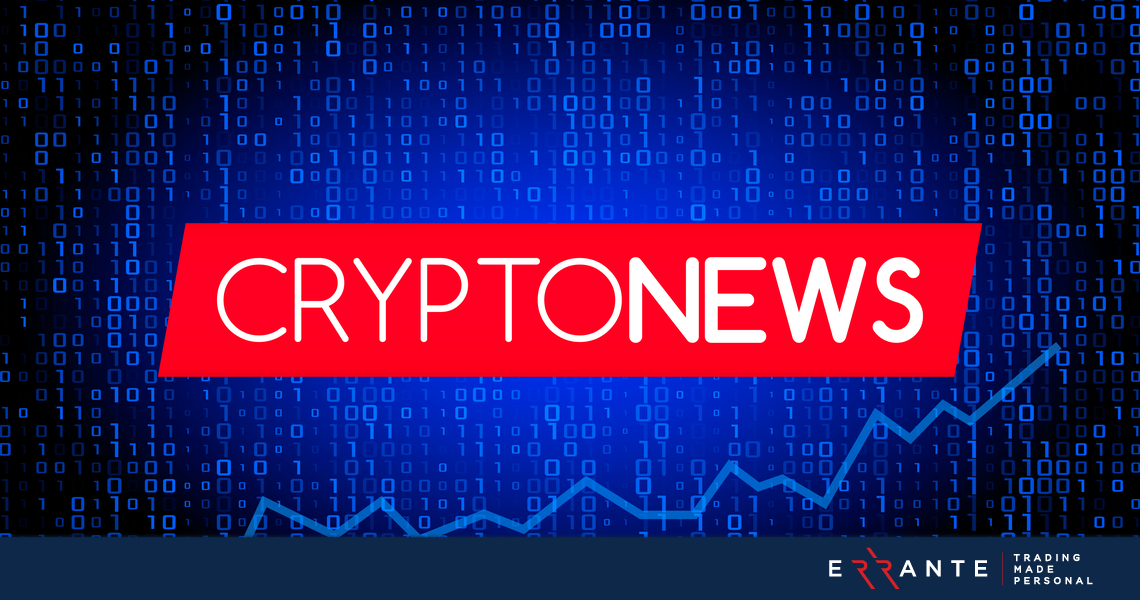Exploring the Effect of Regulatory Adjustments and Technological Technologies on Today's Digital Currencies Headlines
The crossway of governing modifications and technological advancements is fundamentally changing the landscape of electronic currencies, triggering a re-evaluation of their function in the global economic climate. Regulative bodies, such as the SEC and CFTC, are proactively affecting just how electronic properties are identified, while brand-new modern technologies are boosting deal efficiencies and safety steps. This dual evolution raises vital questions regarding the implications for market dynamics and financier self-confidence. As we explore these developments, the question remains: how will these elements form the future trajectory of digital money in an increasingly interconnected globe?
Current Regulatory Landscape
In the wake of rapid developments in digital currencies, the current governing landscape is developing to address the complexities and difficulties posed by these developments. Governments and regulative bodies worldwide are grappling with just how to properly manage this burgeoning market, which usually transcends national limits.
Trick regulatory strategies include the establishment of frameworks that specify digital currencies, making sure consumer security and protecting against illegal activities such as money laundering and scams. In the USA, firms like the Stocks and Exchange Compensation (SEC) and the Product Futures Trading Commission (CFTC) are proactively taking part in conversations to clear up the category of different digital assets and their regulatory effects.
Likewise, the European Union is progressing its Markets in copyright-Assets (MiCA) law, which intends to create a natural regulative environment across participant states. Nations like China have gone with stricter procedures, including outright restrictions on specific copyright activities.
As this regulative landscape remains to develop, it will certainly be important for stakeholders, including companies and customers, to remain educated and adapt to the transforming environment to mitigate risks while capitalizing on opportunities within the electronic money ball.
Trick Technological Innovations
Numerous technical innovations are improving the landscape of electronic money, considerably boosting their capability and safety and security. One of the most essential improvements is the development of blockchain modern technology, which supplies a decentralized ledger that makes sure openness and immutability of deals. copyright news. This modern technology not just alleviates the danger of fraudulence yet likewise permits real-time deal verification, cultivating individual trust
In addition, the appearance of smart contracts has actually reinvented exactly how arrangements are carried out within digital currency ecological communities. These self-executing agreements help with computerized transactions, removing intermediaries and lowering prices related to standard contract enforcement. Additionally, advancements in cryptographic strategies enhance the protection of electronic purses, safeguarding customers' properties from potential cyber hazards.
One more notable innovation is the integration of artificial intelligence in transaction surveillance and fraudulence discovery, making it possible for platforms to identify questionable tasks quickly. The introduction of Layer 2 scaling services, such as the Lightning Network, addresses scalability issues, permitting for faster and less costly purchases on networks like Bitcoin.

Influence On Market Dynamics
Technical advancements in electronic money have not just improved functionality and security yet have likewise considerably altered market characteristics. The introduction of blockchain innovation has raised openness and reduced purchase costs, bring about greater efficiency in trading and financial investment. This has actually motivated an extra varied variety of individuals, from retail capitalists to institutional gamers, to involve with digital money, thus enhancing market liquidity.
Moreover, the introduction of decentralized financing (DeFi) platforms has interrupted typical economic systems, supplying individuals with alternate avenues for lending, borrowing, and trading. This change has actually promoted an affordable atmosphere where typical banks are forced to innovate or risk obsolescence (copyright news). With the surge of stablecoins, which use cost stability among volatility, investors can now perform transactions with decreased risk, further influencing market behavior
Additionally, the combination of synthetic intelligence and machine knowing in trading strategies enables extra innovative market go to the website evaluation and predictive modeling. As a result, capitalists are better equipped to reply to market changes, creating an extra dynamic trading environment. Collectively, these advancements are improving the landscape of electronic money, causing a much more interconnected, competitive, and effective market.

International Point Of Views on Law
Regulative methods to digital money vary substantially across the world, typically showing varying financial priorities, social perspectives toward advancement, and levels of technological fostering. In the USA, regulatory bodies such as the SEC and CFTC come to grips with specifying the legal standing of cryptocurrencies, concentrating on investor defense and market stability. The European Union is advancing detailed governing frameworks like the Markets in copyright-Assets (MiCA) proposal, intending to create a unified approach that promotes advancement while ensuring consumer security.
In contrast, countries like China have taken on a straight-out ban on cryptocurrencies, focusing on monetary control and financial security over advancement. On the other hand, countries such as El Salvador have actually accepted Bitcoin as legal tender, showcasing a strong commitment to monetary inclusion and economic modernization.
Developing nations commonly find themselves browsing a complicated landscape, stabilizing the requirement for guideline with the possible advantages of digital money in driving economic development. In general, the worldwide regulative setting continues to be fragmented, with recurring dialogues and changes as federal governments look for to strike a balance in between fostering technology and mitigating threats related to electronic currencies. This dynamic landscape emphasizes the need for recurring international teamwork and discussion among regulatory authorities.
Future Trends in Digital Currencies
As regulative structures evolve, the landscape of electronic money is poised for substantial change. Arising fads indicate a convergence of governing quality and technological innovation, which will shape the future of electronic currencies. Central Financial Institution Digital Currencies (CBDCs) are prepared for to acquire grip as governments explore their possible to enhance financial policy effectiveness and monetary addition.
Simultaneously, decentralized financing (DeFi) platforms are anticipated to test typical financial systems, offering innovative monetary solutions that run without middlemans. This change can lead to a re-evaluation of existing guidelines to fit the distinct attributes of DeFi straight from the source while ensuring customer defense and systemic security.
In addition, the assimilation of expert system and artificial intelligence in copyright trading and threat analysis will certainly redefine investment techniques you could try here and market characteristics. As electronic money become significantly mainstream, problems such as cybersecurity threats and regulative conformity will certainly demand robust remedies.
Last but not least, public understanding and adoption will certainly play a crucial role in determining the trajectory of digital currencies. Boosted understanding and education and learning pertaining to the advantages and threats linked with electronic money will drive acceptance, ultimately affecting the governing landscape and market growths in the years ahead.
Verdict
